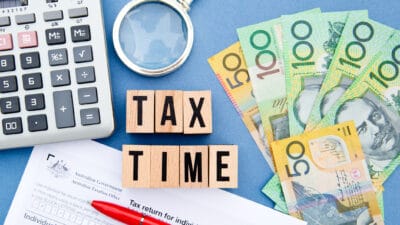It's been a big year for the superannuation industry – Australia's multi-trillion dollar retirement scheme. In response to the coronavirus pandemic and associated economic recession, the government has already created an unprecedented 'early access' scheme. Eligible participants were allowed to withdraw up to $10,000 in FY2020, and a further $10,000 in FY2021 to supplement their income.
But the disruptions haven't ended there for super. One of the less-reported changes in last month's belated federal budget was a raft of changes to the superannuation sector.
According to reporting in the Australian Financial Review (AFR), chief amongst those changes is a new annual performance test by the regulator. The AFR reports that super funds will now have their investment performance 'ranked' on a new website. Additionally, super funds that fail the test twice will be prohibited from accepting new members until they pass.
However, the methods to test super funds are being called into question, by both some large super funds and some market commentators. The test will involve the super funds being "benchmarked against a basket of 12 indices".
Indices and benchmarks for super?
This benchmarking is expected to lead to many super funds utilising a process called 'index hugging'. Index hugging involves investing a large percentage of a fund into exchange-traded funds (ETFs) tracking the very indices the funds are benchmarked against and trying to beat. It both decreases the chances of the fund underperforming, and overperforming the benchmark.
According to the AFR, the Financial Services Council (a superannuation lobby group) has already expressed these concerns to the government.
But the government is pushing ahead, arguing that lower fees are worth the tradeoff. Index funds typically offer far lower fees than an actively managed portfolio.
The AFR also quotes Stockspot's Chris Brycki, who says:
Simply investing in the right mix of low-fee index funds would reduce high fees while delivering stronger returns than almost all actively-managed super funds over the long run.
However, Matt Gaden, of investment firm, Janus Henderson Group CDI (ASX: JHG), disagrees:
If the new regime resulted in funds going 100 per cent passive, it would not be a desirable outcome… you need to understand that an index investment will deliver market returns, good or bad… with no chance for a different outcome if that market heads south.
Gaden says that a "prudent strategy" might instead involve a dominant "passive core" in a super fund, with actively-managed "satellites" to hedge against downturns.
Foolish takeaway
I think both parties here have valid concerns. However, I do think that the prospects of lower fees for Aussie super funds do outweigh any other possible negative consequences of the government's reforms in this area. History shows that most actively-managed funds struggle to outperform their indices in any given year anyway, yet still charge far higher fees for trying. I think this probably extends to the super sector as well. As such, I believe the government's reforms are worth giving a chance.







